176 CD / Auryn’s Haydn: op. 54
Description
"The very present sound image underlines the playing of the musicians, as clear as it is free of ornateness, so that the effect of the interpretations is not only thanks to their musical ability, but to the recording technology that has captured Haydn's quartets in a CD recording of enormous presence, revelling in detail." (Pizzicato)
7 reviews for 176 CD / Auryn’s Haydn: op. 54
You must be logged in to post a review.

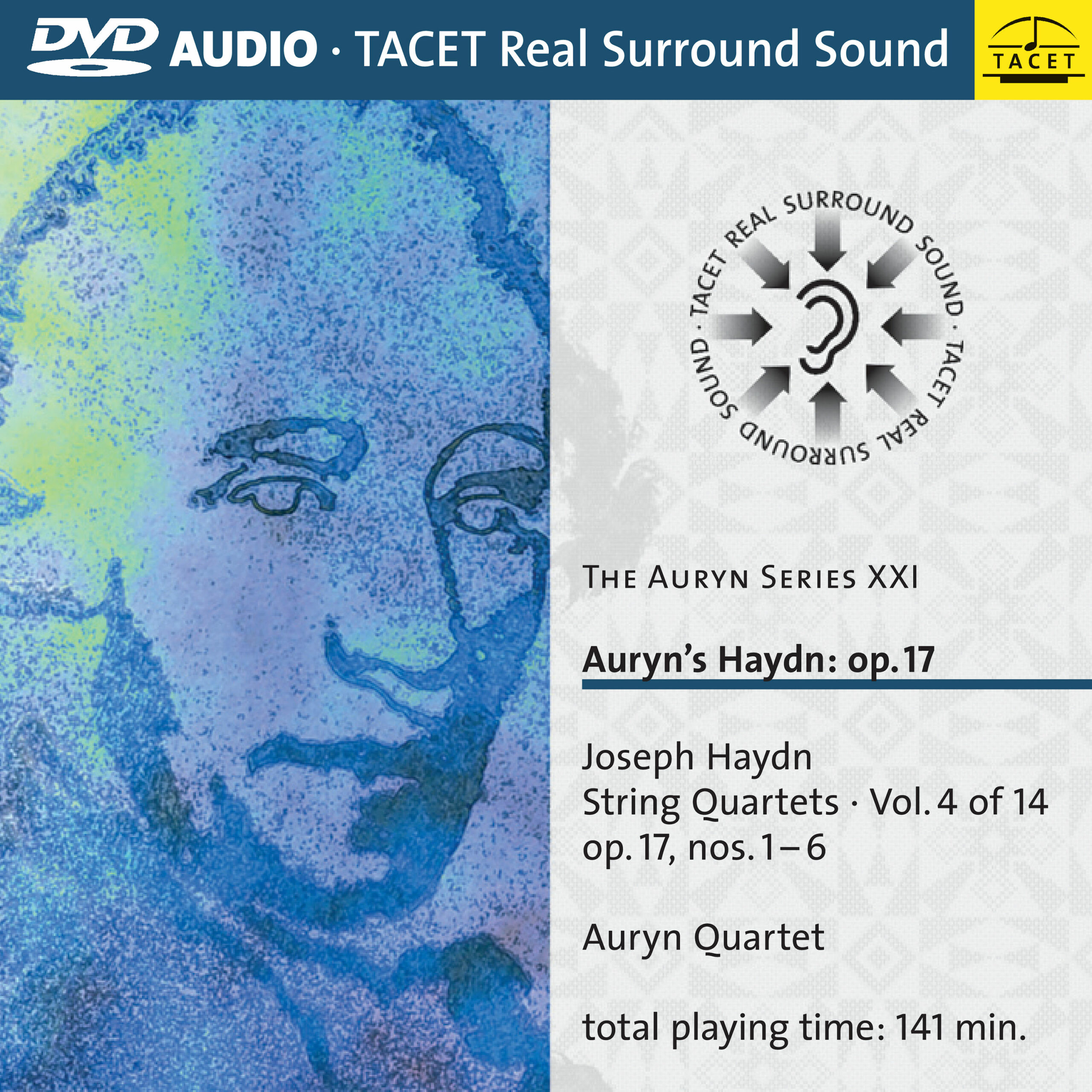
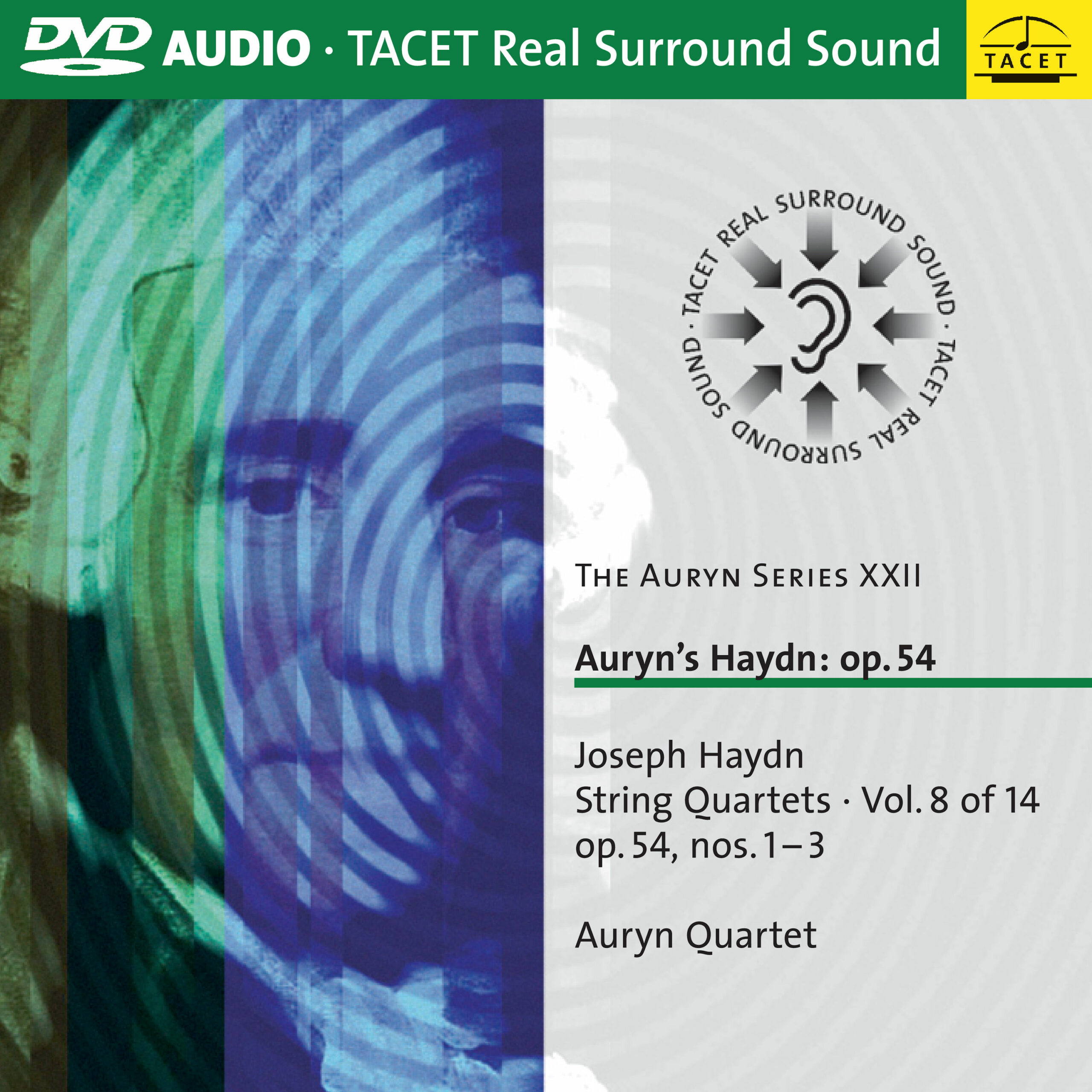
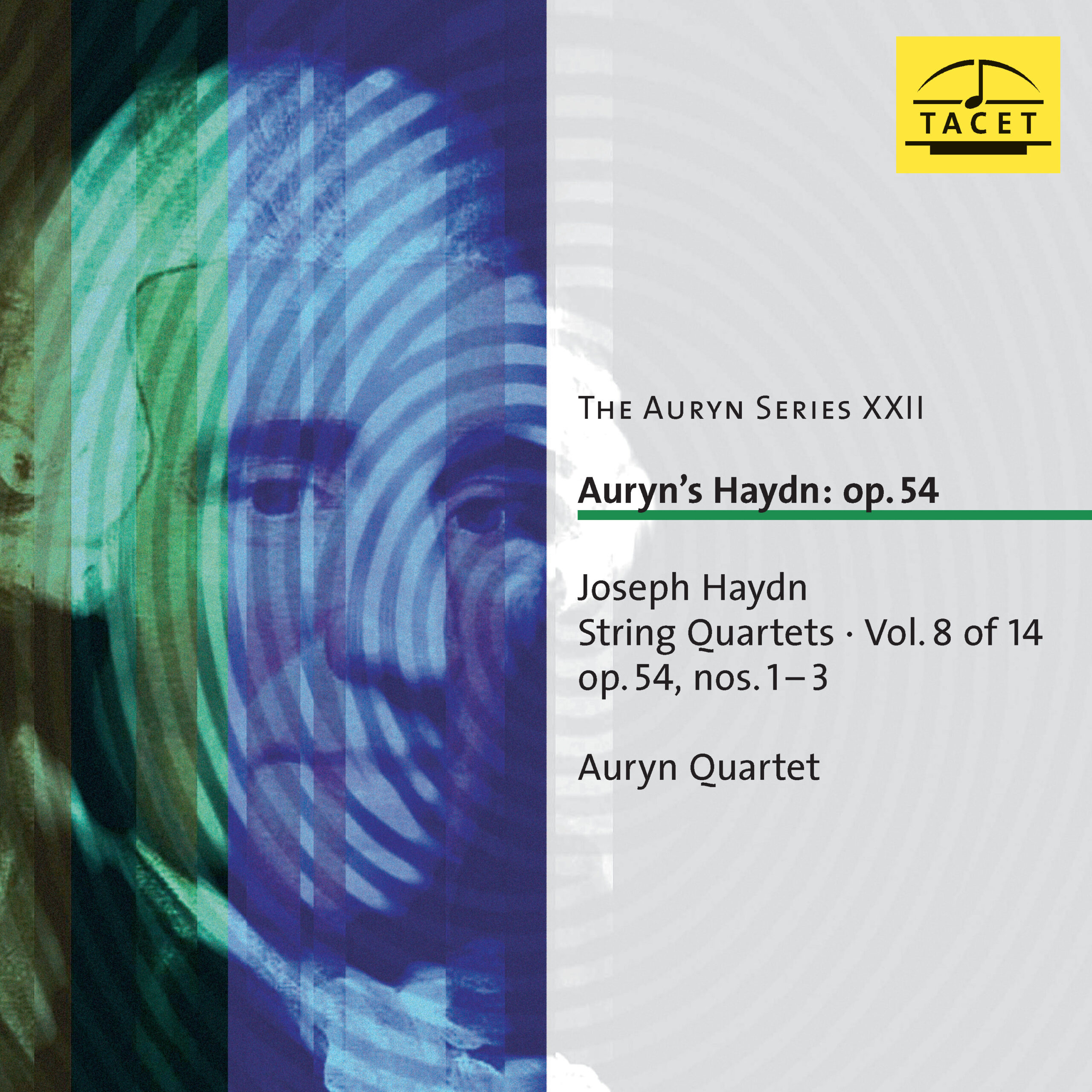
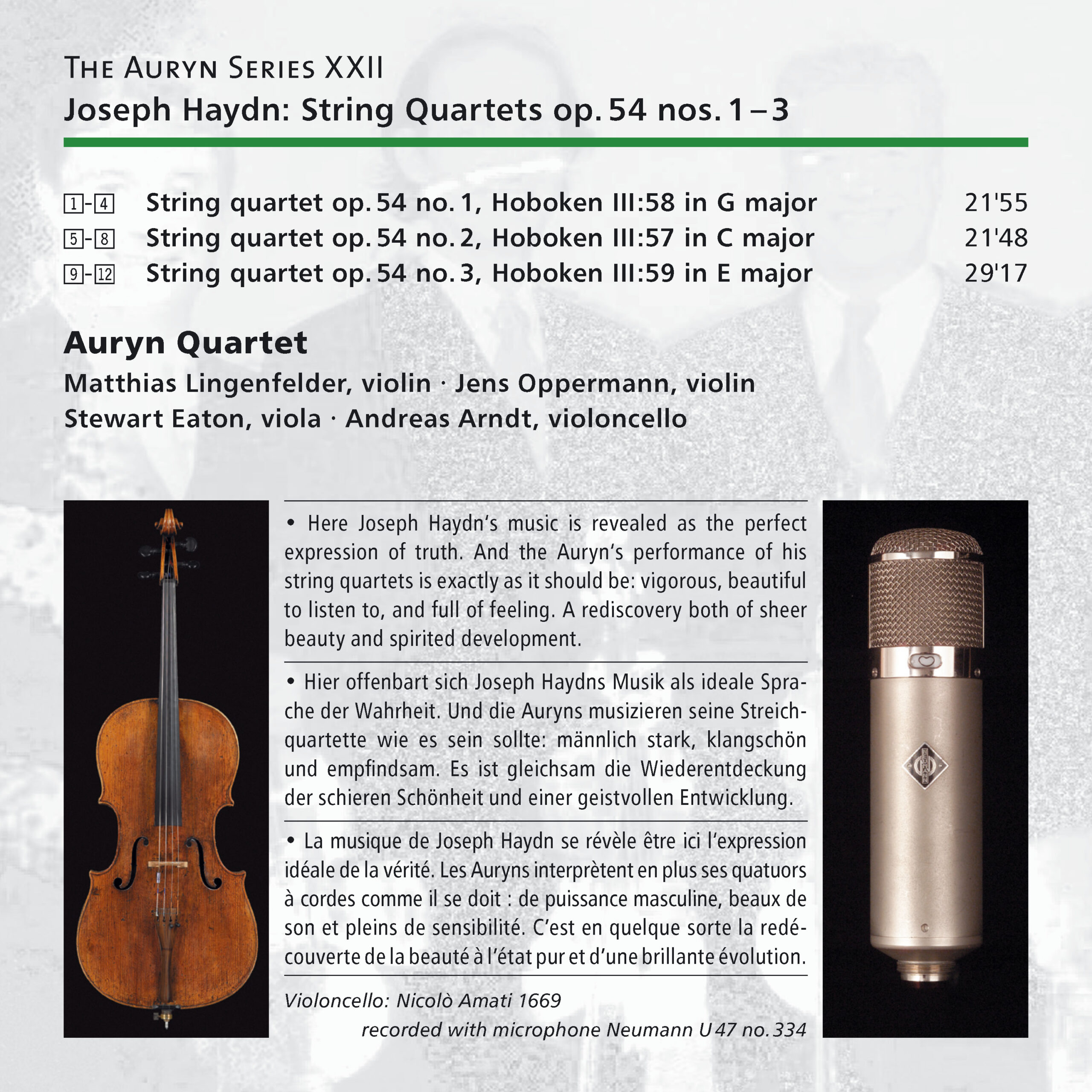


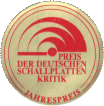

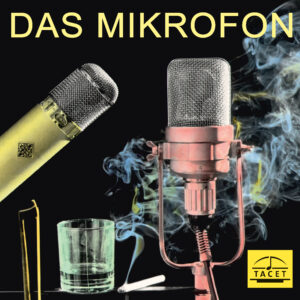
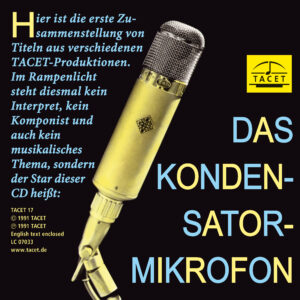
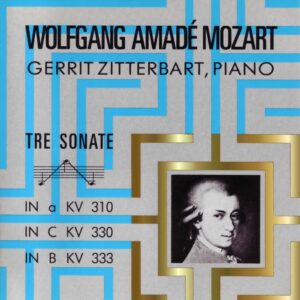
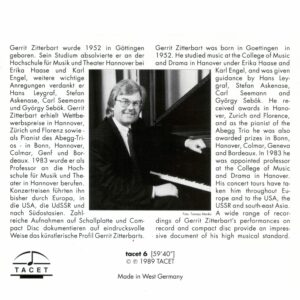
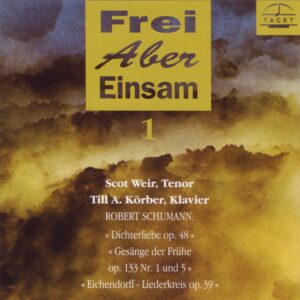
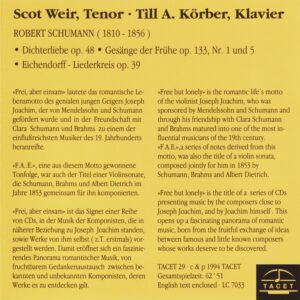
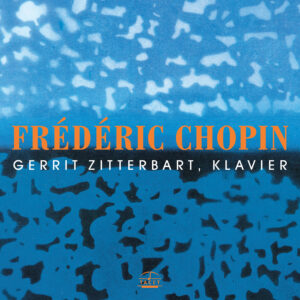
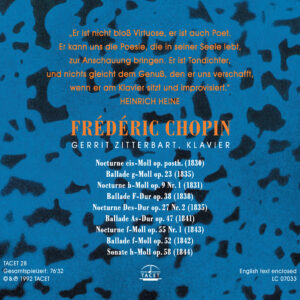
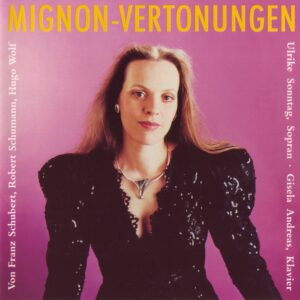
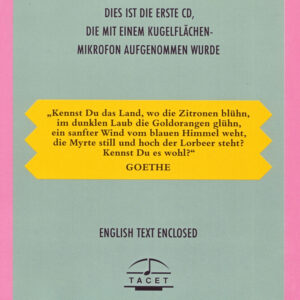
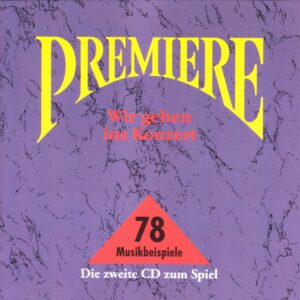
Preis der deutschen Schallplattenkritik –
Laudatio for the Award of the German Record Critics' Annual Prize to the Haydn Cycle by the Auryn Quartet
Joseph Haydn is considered the father of the string quartet genre. The Auryn Quartet recorded his nearly 70 string quartets over a two-year period: for the first time using the critically edited "purified" text, with esprit, lively emotion, and highly differentiated ensemble playing, all within a natural sound space: a small sensation. Such an undertaking requires a label that is not only technically state-of-the-art but also willing to take risks. The Stuttgart-based TACET Musikproduktion has distinguished itself several times through this very combination of skill and daring. Therefore, we award the Annual Prize to the Auryn Quartet and their producer/sound engineer Andreas Spreer for their epochal Haydn project, which is already assured a prominent place in the annals of sound recording.
(For the jury: Thomas Rübenacker)
Fanfare-Magazin –
As noted in Fanfare 31:5 in a review of the Auryn’s recordings of late Beethoven, I had no awareness at that time of the group’s having already had a 20-year career; I added praise for their work and hoped that I would hear further releases from what seemed an extraordinarily accomplished ensemble. Well, here is that release. It not only echoes my earlier impression, it suggests that the Auryn’s approach to Haydn is virtually identical to its way with late Beethoven. Tempos are essentially middle of the road, never pushed too hard, yet always animated, an animation underscored by exceptionally clean execution. Note, in particular, how, even in the most rapidly articulated passages, such as the 64th notes in the second movement of No. 3, nothing is blurred. Then, too, balances are exemplary, every voice clearly audible, the texture of the music always well focused. Some credit for this must go to superior engineering, which manages to provide a very close perspective while avoiding the occasional heavy breathing that infects some quartet recordings. But perhaps the major reason this op. 54 set seems so impressive is that it lends the music a stature that I have never heard before. (...) Perhaps the group’s op. 54 is not "the best" recorded version of the set, but, in all fairness, I’ve never heard a better one.
Mortimer H. Frank
Klassik heute –
The Auryn Quartet's Haydn series at Tacet is progressing swiftly – and (as is pleasing to note) without losing any quality. The recently released Volume 8 of the complete recording of all the master's string quartets, planned to span 14 installments, is marked by the same freshness and naturalness as its predecessors. This applies both to the sonic quality of the recording and to the playing of Messrs. Lingenfelder, Oppermann, Eaton, and Arndt, who once again dive into Haydn's sound world with tireless energy and extraordinary sensitivity.
The three quartets of Op. 54, composed around 1788 and the first of the twelve so-called "Tost Quartets," in which Haydn took the classical string quartet form to its pinnacle, reveal the immense creative power of the composer. Free from constraints and conventions, Haydn allows his imagination and experimental spirit to flow freely here, testing – based on the traditional standards he himself had shaped – new principles of construction, harmonic connections, and musical forms, while consciously playing with the expectations of the listeners. His inventiveness seems to have no boundaries, yet his experience and craftsmanship bring all the elements together into a convincing, well-thought-out whole. While the distinctive features in the G major and E major quartets slip in rather unobtrusively, the middle piece of the trio, the C major quartet, stands out at first glance. The almost gypsy-like violin solo over a chorale-like accompaniment in the Adagio, and the highly unsettling structure of the finale for the time, are just two of the characteristics of one of Haydn's most experimental works.
In this technically excellent recording, the Auryn Quartet allows its listeners to experience all the compositional events almost firsthand. The musicians possess the essential sense of both the humor and the seriousness of Haydn, and through this new release, they enhance the prospect that a new reference recording is in the making.
Sixtus König
Stuttgarter Zeitung –
The string quartets, which are currently being completed by the Auryn Quartet for the Stuttgart label TACET, are brilliantly interpreted and recorded.
Mirko Weber
Classics Today –
This is excellent quartet playing. Some listeners might well prefer a touch more rhythmic drive in, say, the first movements of the C major and E major quartets, but the Auryn's almost improvisatory spontaneity goes right to the heart of what fine chamber music performance is all about. For example, the tiny hesitations in the phrasing of the C major quartet's opening prepare us for, and explain, Haydn's harmonic surprises without ever telegraphing his intentions. Similarly in the amazing "Gypsy rhapsody" slow movement, despite the necessary prominence of the first violin, the other players truly react to him, surfacing now and then to suggest a hint of countermelody, or a touch of polyphony here and there. It's quite marvelous. The gorgeous slow movement of the E major quartet is magnificently sustained, while the soft ending of the G major quartet's finale is perfectly timed. Tacet's engineering, typically splendid, captures the tangy, resinous timbre of the quartet warmly and unobtrusively, letting the players rather than the microphones balance the ensemble. A beautiful disc, plain and simple.
David Hurwitz
Österreichische Musikzeitschrift –
(...) This also applies to the first six string quartets, which are expertly illuminated on superb-sounding TACET CDs by the German Auryn Quartet. (...) These and other Haydn recordings of the Auryn Quartet convince and indeed thrill the listener through instrumental mastery and sensitivity in their reaction to the respective movement characters. This is doubtless one of the most important contributions to the Haydn Year. (...)
Peter Cossé
Pizzicato –
The Auryn Quartet, on the other hand, always focuses on the substance of the music and offers a more classical interpretation, which, through its very clear articulation of the lines, sounds incredibly current and, in fact, timeless. The very present sound image emphasizes the straightforward and clear playing of the four musicians, so that the impact of the interpretations is not only due to their musical skill but also to the recording technique, which has captured Haydn’s quartets with great presence and attention to detail on the CD.
Steff